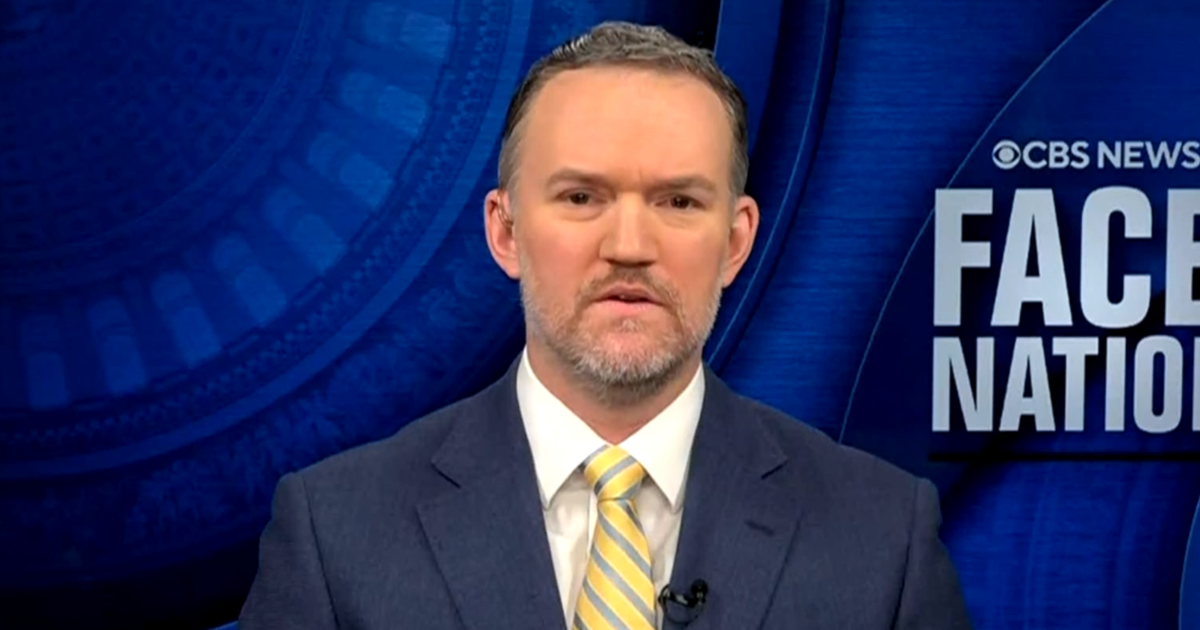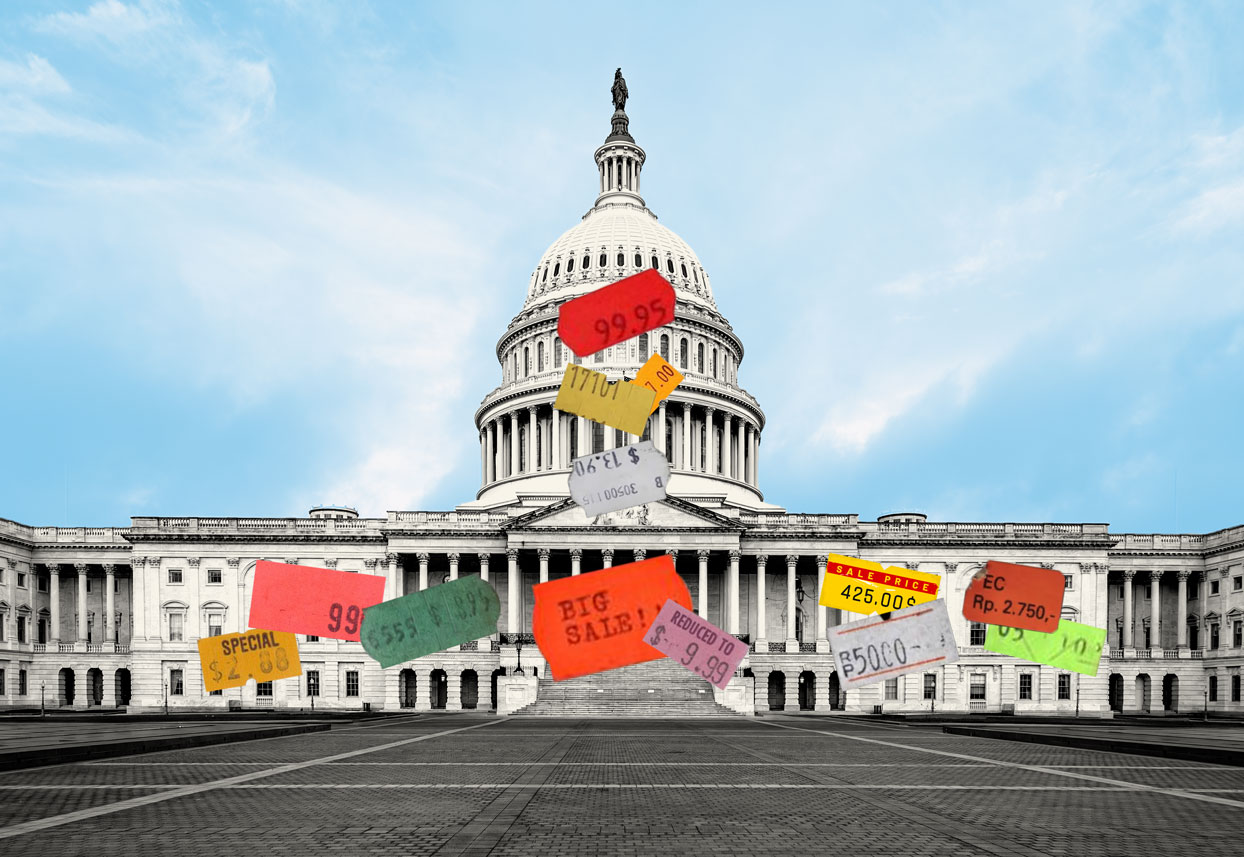Transcript: Gary Cohn on "Face the Nation," Feb. 5, 2023
The following is a transcript of an interview with Gary Cohn, the former top economic adviser in the Trump White House and now vice chairman of IBM, that aired Sunday, Feb. 5, 2023, on "Face the Nation."
MARGARET BRENNAN: We're joined by a former top economic adviser under the Trump administration, Gary Cohn, who is now the vice chairman of IBM. Good morning. Good to have you back here.
GARY COHN: Thanks for having me.
MARGARET BRENNAN: So 517,000 new jobs, but a lot of companies, particularly in tech, are announcing layoffs. So exactly where's the economy headed?
MARGARET BRENNAN: So so it's interesting. We did see the 500,000 plus new jobs, which was quite surprising, I think, to many of us. But I think what we're actually seeing here is a renormalization of the new economy. A lot of the jobs that we saw were jobs in the service industry, the service, the industries coming back very strong because we're starting to see the economy go back to what we historically think of the economy. For the first time, we've seen occupancy rates in offices in major cities over 50%. When you see occupancy rates go up, you need the service sector to work. Think about people going back into the office. They need parking attendants. They need people to work in the buildings. They need security. They need people to clean the buildings. People stop for coffee when they go into the buildings. They go out to lunch. They go to bars. For the- for that to happen, you need the service sectors to come back to work. So the 120,000 service sector employees that came back to work, that 100% correlates with people going back to what is the new normal. It may not be five days a week in the office, but it's enough days in the week in the office where you need the service sector to come back to work. The interesting thing about last month's unemployment numbers is we brought people back to work, but we did not have to entice them with pay. So the monthly, the month over month number in wage gains was 30 basis points. The prior month was 40 basis points. So we're seeing we're getting people back into the labor force for a lower wage than we were prior to this.
MARGARET BRENNAN: And that's a little bit hopeful for you on the inflation front.
GARY COHN: Yeah, and I think this is natural. I think what we've seen is, after all the stimulus that was put in the system over the last three months, people are running out of the stimulus money. We saw that in the fourth quarter of last year. We saw consumer spending slow down. We saw debit balances on credit cards go up. We started to see delinquencies go up. And you know what happened? People actually did the right thing and they went back to work. They're engaged and they reenter the workforce. And I think we saw a lot of that in the January numbers.
MARGARET BRENNAN: So these more positive signs have led Bank of America, for example, to say recession still in the cards, but not until after March. I wonder what your thoughts are on that. And as CEOs warned about borrowing costs going up as a result of the Fed hiking. They are tightening belts. So how far off is this recession?
GARY COHN: Well, we've got a couple of phenomena going on. Interest rates have been going up, so borrowing costs have been going up for companies. On the flip side, the dollar has been weakening. So the multinational corporations in the United States who repatriate earnings from offshore, those repatriated earnings have become more valuable. I think the people that have been really worried about a recession in the first and second quarter of this year, I think after what we've seen this week with both Chairman Powell's announcements and the data in unemployment, I think that recession is off the table for Q and one in Q2 of this year. You know, we're going to get another employment report before the next Fed meeting and we'll see where the economy's going. But it does feel like we're in relatively good shape here. The question is going to be how does the Federal Reserve handle what's going on in the economy? Are we going to continue to have to increase wages to draw people back in the labor force, or are people coming back in the labor force because they need to? And we're not going to have wage inflation if that happens. The Federal Reserve is actually in a very good place.
MARGARET BRENNAN: Let me ask you about something the Fed chair said this week. He said Congress has to lift this debt ceiling. I'm throwing one of the things that could screw up your- your rosy prediction at you. He said no one should assume that the Fed can protect the economy from the consequences of failing to act in a timely manner. He's warning he's not making plans for a default. You're on your own if it happens.
GARY COHN: Yes.
MARGARET BRENNAN: Should there be a plan for the Fed to step in? I mean, I know legally it's in question here, but I talk to people on Capitol Hill who say Wall Street is not taking this seriously enough. The politics are really bad around the debt ceiling.
GARY COHN: The politics are very bad. You know, the one thing is every American, every American is holding the US government to raise the debt ceiling. The full faith and credit of the US dollar and the US dollar being the reserve currency is imperative to our economic well-being as a country. We ultimately have to get the debt ceiling raised. That said, what's going on here is not something out of the ordinary. If you look at debt ceiling raises over the last 40 or 50 years, no matter which party is in the minority, about 50% of the time, debt ceiling raises come with some amendments attached- attached to them from the other party. So this is quite an. Normal, the process that we're going through.
MARGARET BRENNAN: You don't sound overly concerned.
GARY COHN: Like I'm always concerned when we're dealing with debt ceiling, but I have a feeling that we will get there in the end when we have no other choice. You had this- you had the speaker here last week and he felt confident that we would get there when we had no other choice. The speaker met with the president of the United States this week. The two of them came out of the meeting relatively confident. I feel they both understand there is no choice. In the end of the day, we have to raise the debt ceiling. The question is, can the Republicans get something in the legislation, attach the debt ceiling legislation that they want that they feel like is a win and the Democrats are willing to give it to? Historically, that is what's happened numerous times.
MARGARET BRENNAN: Yeah. And the risk there is real. I want to ask you as well about China. Mark Warner was here with us last week and he said technology competition with China is the biggest issue of our time. He's worried about things that- like your company does IBM, in terms of quantum computing. Is enough being done to keep America competitive on that front?
GARY COHN: Well, we're starting you know, if you look at where we've been this year, you know, we passed the CHIPS Act in the United States, which, you know, is- is- is something that's not a normal motion for us in the United States for the federal government to pick and choose--
MARGARET BRENNAN: To subsidize.
GARY COHN: --an industry, and and to subsidize. It really is not a normal action- is an action that, you know, historically I probably not would have been have supportive. I was extremely supportive of the CHIPS Act, we at IBM was extremely supportive of the CHIPS Act. If we learned nothing else from the pandemic, we learned that there are certain goods that are necessity goods for this country to have, and we are overly reliant on places like China. And if we don't find ways to change the manufacturing system in the supply chain and move it back to the United States where we can take care of ourselves, we have made a catastrophic miscalculation. Chips are one of those areas where we cannot depend on the rest of the world and run our manufacturing business and continue to grow our economy. Pharmaceuticals is another area where we really have to move that industry and that manufacturing back to the United States. So I think we really have to evaluate what are the most crucial and sensitive businesses or industries that we cannot live within the United States. And we're going to have to make real investments in those here in this country.
MARGARET BRENNAN: And we'll keep talking about it with legislators. Have to figure out how to pass some of those laws. We're going to take a quick break. And when we come back, we'll be talking with four members of the freshman class and the 118th Congress.



